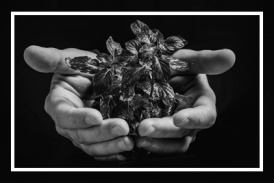MENA: UAE’s Landmark Climate Law Takes Effect, Marking A Bold Leap Toward Regional Climate Leadership
Ghiwa Nakat, Executive Director of Greenpeace MENA, stated:
“This law marks a bold and progressive move in the UAE’s climate leadership. By institutionalizing emissions monitoring and climate adaptation, the UAE is setting a compelling example for countries across the region. We commend this important step and look forward to seeing its full implementation through measures that reflect the ambition of the law and respond to the pressing realities of the climate crisis.
She added: “The UAE’s strategic action sends a powerful signal across the region and globally—that climate resilience and sustainable development are now national imperatives. With robust frameworks for emissions reduction and adaptation in place, the UAE is well-positioned to lead by example.”
This legislation offers the UAE a significant opportunity to build on the historic 'UAE Consensus' reached at COP28 in Dubai, which included unprecedented language on the need for a just, orderly, and equitable transition away from fossil fuels in energy systems. The significance of the law lies in its formalization of the country’s climate commitment through legally binding legislation. To fully realize the law’s potential and support the UAE’s net-zero goals and latest climate action commitments under the Paris Agreement (its Nationally Determined Contribution or NDC), Greenpeace MENA encourages the UAE to follow up this legislation with robust and bold implementation resolutions. These could include setting clear emissions reduction targets for major sectors like energy and transport that directly support the commitments outlined in the NDC. In addition, prioritizing ambitious renewable energy deployment over reliance on carbon capture will ensure the UAE meets its net-zero goals sustainably.
As the UAE enters a new era of climate governance, the true measure of success will be its ability to translate this legal milestone into deep, measurable emissions cuts and a just transition, setting a transformative precedent for the MENA region and beyond.
Hiam Mardini
Greenpeace MENA
+961 71 553 232
hmardini@greenpeace.org
Legal Disclaimer:
EIN Presswire provides this news content "as is" without warranty of any kind. We do not accept any responsibility or liability for the accuracy, content, images, videos, licenses, completeness, legality, or reliability of the information contained in this article. If you have any complaints or copyright issues related to this article, kindly contact the author above.
Aerospace Propellant Global Market Report 2025| Business Growth, Development Factors, Current and Future Trends
Empowering Small Businesses with AI Agents: Rexpt lets Businesses create their Agentic AI Receptionist, Under 3 Minutes
Equality Now highlights how the Equal Rights Amendment can help safeguard LGBTQ+ rights and same-sex marriage
Więcej ważnych informacji
 Jedynka Newserii
Jedynka Newserii

 Jedynka Newserii
Jedynka Newserii

Konsument

Tylko 35 proc. Celów Zrównoważonego Rozwoju ONZ możliwe do osiągnięcia przed 2030 r. Potrzebna ściślejsza współpraca międzynarodowa
Jak wynika z raportu ONZ, choć w ciągu ostatniej dekady dzięki dążeniu do realizacji przyjętych celów udało się poprawić życie milionów ludzi na całym świecie, to jednak tempo zmian pozostaje zbyt wolne, by dało się je osiągnąć do 2030 roku. Postęp hamują przede wszystkim eskalacja konfliktów, zmiana klimatu, rosnące nierówności i niewystarczające finansowanie. Jak wynika ze sprawozdania Parlamentu Europejskiego, problemem jest także brak ścisłej współpracy międzynarodowej i sceptyczne podejście niektórych państw ONZ.
Przemysł spożywczy
UNICEF: Wszystkie dzieci poniżej piątego roku życia w Gazie cierpią z powodu niedożywienia. Sytuacja jest katastrofalna

Ataki Izraela na Strefę Gazy i jej izolacja doprowadziły do całkowitego załamania podstawowych usług i ograniczenia możliwości dostaw i dystrybucji pomocy humanitarnej – wskazuje UNICEF. W efekcie setki tysięcy Palestyńczyków są w sytuacji ciągłego zagrożenia życia i cierpią z powodu niedożywienia i głodu. Ta klęska dotyczy praktycznie wszystkich dzieci poniżej piątego roku życia. Konflikty są jednym z głównych przyczyn braku bezpieczeństwa żywnościowego, głodu i niedożywienia na świecie. Szczególnie dotyczy to Afryki i Azji Zachodniej.
Prawo
Branża ciepłownictwa czeka na unijną i krajową strategię transformacji. Liczy na większe fundusze i korzystne regulacje

Komisja Europejska zapowiedziała rozpoczęcie w I kwartale 2026 roku prac nad strategią dla ciepłownictwa i chłodnictwa. Nad tym strategicznym dokumentem w zakresie ciepłownictwa pracuje także polski rząd. Branża podkreśla, że obie te strategie będą miały kluczowe znaczenie dla trwającej transformacji w ciepłownictwie, czyli przyszłości ogromnych inwestycji, które czekają sektor do 2050 roku. Jednocześnie apeluje o większe wsparcie tego procesu ze środków publicznych.
Partner serwisu
Szkolenia

Akademia Newserii
Akademia Newserii to projekt, w ramach którego najlepsi polscy dziennikarze biznesowi, giełdowi oraz lifestylowi, a także szkoleniowcy z wieloletnim doświadczeniem dzielą się swoją wiedzą nt. pracy z mediami.


![Nestlé w Polsce podsumowuje wpływ na krajową gospodarkę. Firma wygenerowała 0,6 proc. polskiego PKB [DEPESZA]](https://www.newseria.pl/files/1097841585/fabryka-nesquik_1,w_85,r_png,_small.png)






.gif)

 |
| |
| |
|